Dexcom G6 is the first real-time continuous glucose monitoring (rt-CGM) system that is authorised to be interoperable with an insulin delivery product. It features a 10-day sensor and requires zero fingersticks* or scanning, supporting greater freedom and flexibility for your patients ages 2 years and older to manage their diabetes.
*If your glucose alerts and readings from Dexcom G6 do not match symptoms or expectations, use a blood glucose meter to make diabetes treatment decisions.
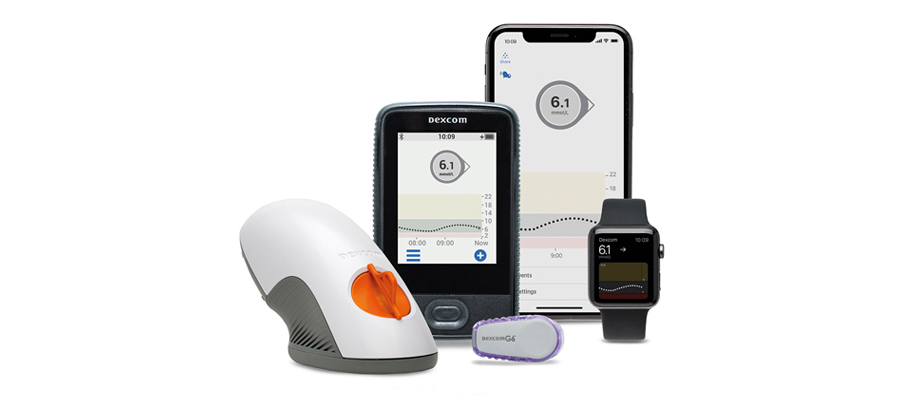
Smart devices sold separately†
Why prescribe Dexcom G6?
Dexcom G6 can help empower your patients with proven accuracy1 and a suite of protective alerts, including a predictive “Urgent Low Soon” alert. Dexcom G6 can help simplify the way you treat your patients—in-person or via remote clinic appointments—to maximize their care.
Zero fingersticks* or scanning
Exceptional accuracy1 for diabetes management, with no fingersticks* or scanning required.
*If your glucose alerts and readings from Dexcom G6 do not match symptoms or expectations, use a blood glucose meter to make diabetes treatment decisions.
Customisable alert schedules
Customisable high and low glucose alerts offer your patients the ability to set alert schedules and repeat alert functionality for discretion and flexibility.
Continuous Share‡
Up to 10 family and friends can receive glucose readings and alerts.‡ Widening the support network, this feature can support greater peace of mind, particularly in parents and caregivers.
Exceptional Accuracy 1
Across all glucose ranges and no calibration is required.
Interoperability
Dexcom G6 can power certain Automated Insulin Delivery (AID) systems.
Urgent Low Soon Alert
The “Urgent Low Soon” Alert can warn patients in advance of a potential severe hypoglycaemic event (≤ 3.1 mmol/L) within 20 minutes and is associated with reduced hypoglycaemia, without a corresponding increase in hyperglycaemia.2
Dexcom G6 Components
Using the auto-applicator, patients or caregivers can insert the sensor and then snap in the transmitter. Then, they will be able to view glucose data from the transmitter via a patient’s selected display device.
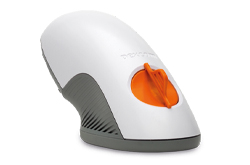
Auto-Applicator
Simplifies the sensor insertion process with a push of a button.
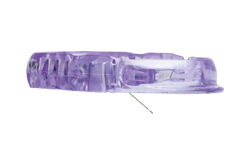
Sensor
Monitors interstitial glucose levels through a small wire inserted just underneath the skin, sending a signal to the transmitter.
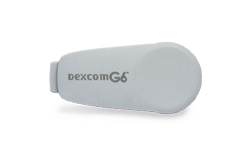
Transmitter
Fastened on top of the sensor; sends data wirelessly to a patient’s display device.
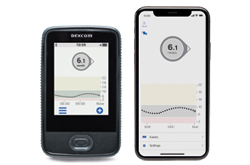
Display Device
Shows glucose readings and trend data on the touchscreen receiver or the patient’s compatible smart device.†
†Smart devices sold separately. To view a list of compatible smart devices, visit dexcom.com/compatibility.
How to identify patients who may benefit from Dexcom G6

Dexcom G6 is suitable for anyone with diabetes over the age of 2 years, including pregnant patients.
It can be worn by patients who use a pump and by those on multiple daily injections.
In line with UK Consensus and Criteria Guidance, choose Dexcom G6 first for your patients including;
• Paediatric patients, who are less sensitive to their hypoglycaemia
• Pregnant patients with type 1 diabetes
• Patients who suffer frequent hypoglycaemia; have a complete loss of awareness or extreme fear of hypoglycaemia; or who suffer persistent hyperglycaemia despite frequent testing
To find out more information on how to access Dexcom G6 for your patients speak to a Dexcom Representative.
*If your glucose alerts and readings from Dexcom G6 do not match symptoms or expectations, use a blood glucose meter to make diabetes treatment decisions.
† For a list of compatible devices, visit Dexcom.com/compatibility
‡ Internet connectivity required for data sharing. Following requires the use of the Follow App. Followers should always confirm readings on the Dexcom G6 App or Receiver before making treatment decisions.
1 Shah VN, et al. Diabetes Technol Ther. 2018;20(6):428–433.
2 Puhr S, et al. Diabetes Technol Ther 2019;21(4):155-8.